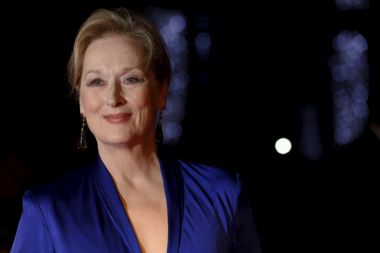Meryl Streep slams sexism in the Catholic Church

The Catholic Church is contributing to "infuriating" levels of sexism, actress Meryl Streep has said.
Speaking at the BFI London Film Festival on Wednesday, Streep said "the Church is a body that excludes people. There are two places you [women] can't vote in the world – in Saudi Arabia, although they are registering people supposedly, and the Vatican. That seems wrong to me."
Vatican City, the world's smallest state, is believed to have around 30 female citizens, and more than 500 male. Only cardinals, men appointed as leaders in the Church, have the right to vote.
During the same discussion, Streep – who plays Emmeline Pankhurst in new film Suffragette – blasted the film criticism industry for gender inequality. "The word isn't 'disheartening', it's 'infuriating'," she said, noting that there are just 168 women compared to 760 men who contribute to the ratings on critic website Rotten Tomatoes.
"In the United States when people go to find a movie to watch at night, to go out to the movies they go to something called Rotten Tomatoes. So I went deep, deep, deep, deep into Rotten Tomatoes," she said.
"There are 168 women. And I thought that's absolutely fantastic, and if there were 168 men it would be balanced. If there were 268 men it would be unfair but I would be used to it, if there were 368, if there were 468, 568...actually there are 760 men who weigh in on the Tomatometer.
"I submit to you that men and women are not the same, they like different things. Sometimes they like the same thing but sometimes their tastes diverge. If the Tomatometer is slighted so completely to one set of tastes that drives box office in the United States, absolutely."
Last Week, Streep surprised some activists by distancing herself from the word 'feminism' in an interview with Time Out magazine. "I am a humanist, I am for nice easy balance," she said.
Later clarifying her position to The Daily Beast, Streep added: "There's a phrase in this film that says 'Deeds, not words.' And that's sort of where I stand on that. I let the actions of my life stand for where I am. Contend with that – not the words."











